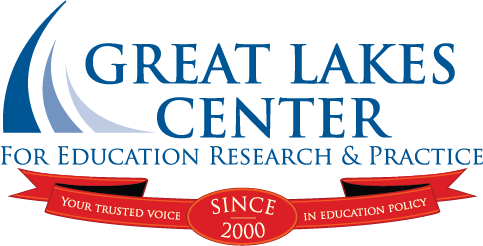
Think Twice Weekly Report
JANUARY 6, 2023 - JANUARY 12, 2024
The Think Twice Weekly Report compiles public education-related policy reports, research and articles of interest to policymakers, educators and stakeholders. This list is not exhaustive but is meant to highlight recent reports that may be used to support or undermine the work of our subscribers in supporting public schools. We encourage you to take a moment to scan these reports and determine if they may be used by policy makers to assist or erode your mission.
 Policy Reports
Policy Reports
Literacy Education
Source: Annenberg Institute at Brown University
Date: 1/10/2024
The Achievement Effects of Scaling Early Literacy Reforms
While policymakers have demonstrated considerable enthusiasm for "science of reading" initiatives, the evidence on the impact of related reforms when implemented at scale is limited. In this pre-registered, quasi-experimental study, we examine California's recent initiative to improve early literacy across the state's lowest-performing elementary schools. The Early Literacy Support Block Grant (ELSBG) provided teacher professional development grounded in the science of reading as well as aligned supports (e.g., assessments and interventions), new funding (about $1000 per student), spending flexibility within specified guidelines, and expert facilitation and oversight of school-based planning. We find that ELSBG generated significant (and cost-effective) improvements in ELA achievement in its first two years of implementation (0.14 SD) as well as smaller, spillover improvements in math achievement.
 Reports Reviewed
Reports Reviewed
GLC seeks to ensure that policy briefs impacting education reform are based on sound, credible academic research. Below are reviews conducted with GLC support.
Review of The Cost-Effectiveness of Wisconsin's Private School Choice Programs
Source: School Choice Wisconsin
Reviewed by: Stephen Kotok, St. John's University
A recent report from School Choice Wisconsin claims that Wisconsin's voucher programs are highly "productive," achieving better academic outcomes at lower costs than public schools. A closer examination, however, calls into question the validity of these assertions.
Stephen Kotok of St. John's University reviewed The Cost-Effectiveness of Wisconsin's Private School Choice Programs, and identified substantial methodological shortcomings that undermine its conclusions, including reliance on biased comparisons and limited financial accounting.
 What We're Reading
What We're Reading
Research and articles that we want to highlight for subscribers as potential resources:
FTC Proposes Strengthening Children's Privacy Rule to Further Limit Companies' Ability to Monetize Children's Data
By: Federal Trade Commission
The FTC proposal aims to shift the burden from parents to providers to ensure that digital services are safe and secure for children. "Kids must be able to play and learn online without being endlessly tracked by companies looking to hoard and monetize their personal data," said FTC Chair Lina M. Khan.
Florida schools prepare for 'painful' task of changing start times
By: Jeffrey S. Solochek, Tampa Bay Times
Gov. Ron DeSantis signed the law mandating that districts must start middle school classes after 8 a.m., and high school classes at 8:30 a.m. or later.
Media Literacy Resources from Learning for Justice
By: Learning For Justice
The Media Literacy Resources page provides guidance for introducing essential media literacy skills and links to media and digital literacy content.
Newark City Council passes ordinance allowing some teenagers to vote in school board elections
By: CBS News
Sixteen- and seventeen-year-olds in Newark are poised to vote in upcoming school board elections.
Relationships matter in education, so why aren't we better at prioritizing them?
By: Jay Schroder, K-23 Dive
A veteran educator and teacher trainer shares how three stages of learning play a role in the mechanics of student-teacher relationship-building.
